Plastic recycling Automotive – Composites growth 17-07-2023 - Arhive
Plastic recycling Automotive electric vehicle
Petrochemicals -PET Bottle – Polymers – Feedstocks – Textiles
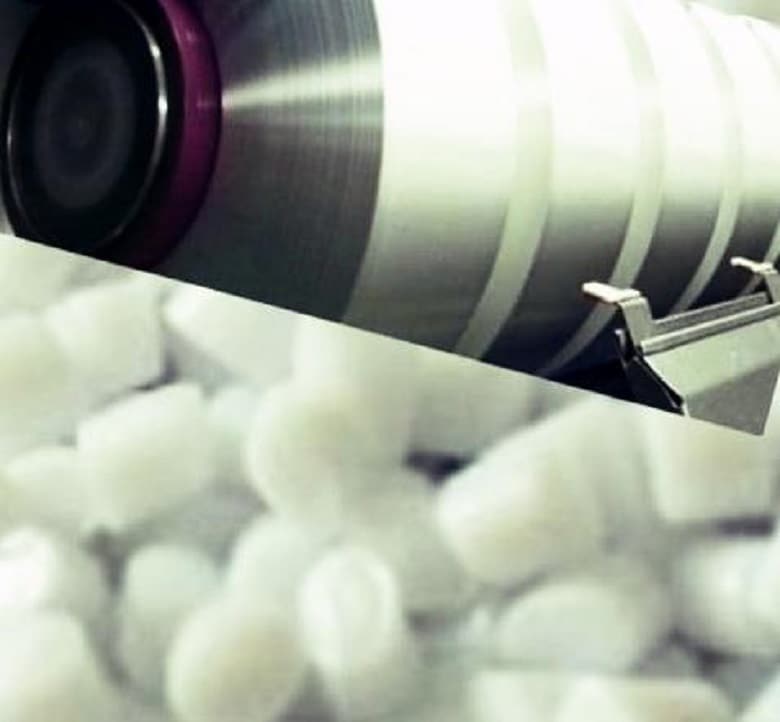
Crude Oil Prices Trend
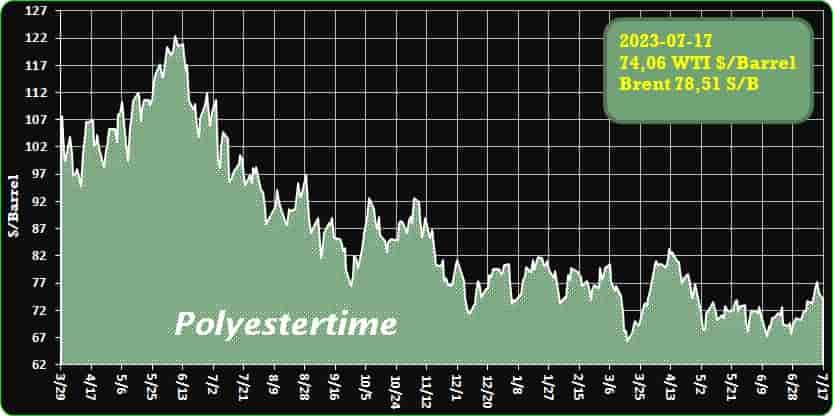
Crude Oil Prices Trend by PolyestertimeCrude Oil Prices Trend by Polyestertime
Freudenberg, a leading global supplier of high-performance technical textiles, has recently launched a geosynthetics production line in Changzhou, China
This strategic move allows Freudenberg to cater to customers in the Asia-Pacific (APAC) region by offering Enka Solutions manufactured in China for various applications in building, industrial, and civil engineering. Furthermore, the company can now extend its services to diverse technical markets, providing finished and semi-finished products.
By investing in this new facility in China, Freudenberg significantly enhances the production capacity of Enka Solutions and strengthens its business development in the APAC region. Plastic recycling Automotive
The inauguration of the Changzhou production line took place during an opening ceremony on July 13, marking an important milestone for the company.
electric vehicle
The addition of the Changzhou production line complements Freudenberg’s existing manufacturing operations in Obernburg, Germany, and Asheville, NC. With manufacturing facilities spanning across Europe, Asia, and America, Freudenberg is now capable of serving local markets and delivering Enka Solutions products more efficiently. This localized approach not only enables the company to better meet customer requirements but also contributes to a reduced environmental impact by minimizing the need for long-distance transportation. Plastic recycling Automotive
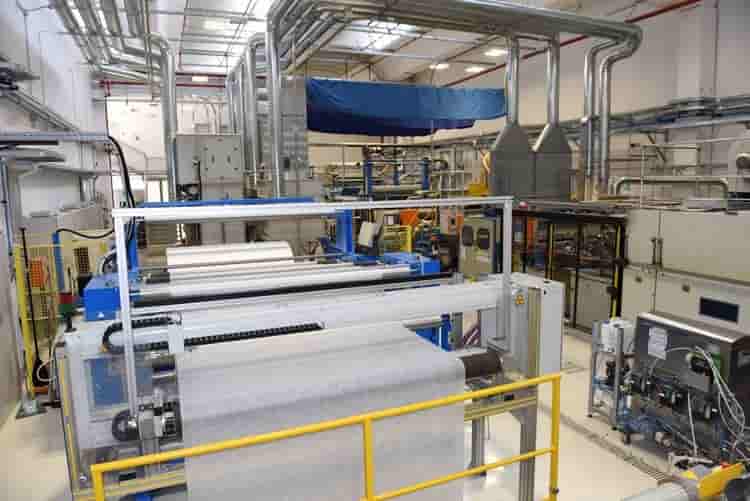
Plastic Composites in Automotive
Plastic composites are a type of material that is made up of a polymer matrix and a reinforcing material. The polymer matrix is a resin that holds the reinforcing material together, and the reinforcing material can be made of glass fibers, carbon fibers, or other materials.
Plastic composites are used in a wide variety of automotive applications, including:
- Body panels: Plastic composites are often used for body panels because they are lightweight and strong. They can also be molded into complex shapes, which makes them ideal for use in automotive applications.
- Engine components: Plastic composites are also used for engine components, such as intake manifolds and exhaust manifolds. They are lightweight and can withstand high temperatures, which makes them ideal for use in these applications. Plastic recycling Automotive
- Interior components: Plastic composites are also used for interior components, such as dashboards, door panels, and seats. They are lightweight and can be molded into complex shapes, which makes them ideal for use in these applications.
- Under-the-hood components: Plastic composites are also used for under-the-hood components, such as air intakes and oil pans. They are lightweight and can withstand high temperatures, which makes them ideal for use in these applications.
electric vehicle
The use of plastic composites in automotive applications is growing rapidly. This is due to the many advantages that plastic composites offer over traditional materials, such as steel and aluminum.
Some of the advantages of plastic composites include:
- Lightweight: Plastic composites are much lighter than steel and aluminum, which can lead to significant weight savings in vehicles.
- Strength: Plastic composites are very strong, and they can often withstand more stress than traditional materials.
- Durability: Plastic composites are very durable, and they can withstand the harsh environments that vehicles are exposed to.
- Cost-effectiveness: Plastic composites are often more cost-effective than traditional materials, especially when considering the weight savings that they can offer.
As the demand for lighter, stronger, and more durable materials in automotive applications continues to grow, the use of plastic composites is expected to continue to grow as well.
In addition to the advantages listed above, plastic composites also offer a number of other benefits, including:
- Corrosion resistance: Plastic composites are resistant to corrosion, which can save money on maintenance costs. Plastic recycling Automotive
- Low maintenance: Plastic composites require very little maintenance, which can save time and money.
- Environmentally friendly: Plastic composites can be recycled, which makes them a more sustainable choice than traditional materials.
Overall, plastic composites offer a number of advantages over traditional materials in automotive applications. These advantages are driving the growth of the use of plastic composites in the automotive industry.
Future Trends
The use of plastic composites in automotive applications is expected to continue to grow in the future. This is due to the many advantages that plastic composites offer over traditional materials, as well as the increasing demand for lighter, stronger, and more durable materials in vehicles.
Some of the future trends in the use of plastic composites in automotive applications include:
- The use of advanced composites: Advanced composites, such as carbon fiber composites, are becoming more affordable and are being used in a wider range of automotive applications. Plastic recycling Automotive
- The use of 3D printing: 3D printing is being used to create complex plastic composite parts that would be difficult or impossible to manufacture using traditional methods.
electric vehicle
- The use of recycled materials: The use of recycled materials in plastic composites is increasing, as automakers look for ways to reduce their environmental impact.
The use of plastic composites in automotive applications is a growing trend that is being driven by the need for lighter, stronger, and more durable materials in vehicles. As this trend continues, plastic composites are expected to play an increasingly important role in the automotive industry. Plastic recycling Automotive

Enhancing the Design and Lifecycle Management of Cars: Promoting Circular Economy in the Automotive Sector
The European Commission has put forth a set of measures aimed at bolstering the circularity of the automotive industry, encompassing the design, production, and end-of-life treatment of vehicles.
This initiative seeks to improve resource accessibility for the EU economy, align with environmental and climate objectives, strengthen the single market, and address challenges arising from the ongoing transformation of the automotive sector.
The proposed actions are anticipated to generate a net revenue of €1.8 billion by 2035. Additionally, they will lead to job creation and enhanced revenue streams within the waste management and recycling industry. Plastic recycling Automotive
Moreover, these measures will contribute to enhancing road safety in third countries by preventing the export of vehicles that are not roadworthy, while mitigating harmful pollution and health risks associated with importing used vehicles from the EU.
Replacing the existing Directives on end-of-life vehicles and on reusability, recyclability, and recoverability, the proposed regulation is expected to yield significant environmental benefits. This includes an annual reduction of 12.3 million tons of CO2 emissions by 2035, improved valorization of 5.4 million tons of materials, and increased recovery of critical raw materials. Implementation of this regulation will result in long-term energy savings during the manufacturing stage, decreased reliance on imported raw materials, and the promotion of sustainable and circular business models. Plastic recycling Automotive
Projections indicate that the automotive sector will become the largest consumer of critical raw materials used in permanent magnets for e-drive motors in Europe. Strengthening the EU’s resilience against supply chain disruptions and reducing dependence on imports of critical raw materials is crucial for transitioning to zero-emission vehicles. To facilitate this transition, the Commission has revised existing legislation and proposed a single regulation focusing on several key elements to improve quality in design, collection, and recycling while simplifying reporting obligations:
- ‘Design Circular’: Emphasizing circularity in vehicle design and production to facilitate easy dismantling. Carmakers will be required to provide comprehensive instructions to dismantlers regarding part and component replacement during the vehicle’s use and end-of-life stages. Plastic recycling Automotive
- ‘Use Recycled Content’: Mandating that 25% of the plastic used in new vehicles must come from recycling, with 25% sourced from end-of-life vehicles.
- ‘Treat Better’: Measures aimed at recovering more and higher-quality raw materials, including critical raw materials, plastics, steel, and aluminum. The target is to recycle 30% of plastics from end-of-life vehicles. Additional measures will support the market for parts reuse, remanufacturing, and refurbishment. Member States are encouraged to incentivize garages and repair shops to promote the sale of spare parts.
- ‘Improve Governance’: The new rules will strengthen producer responsibility by establishing national Extended Producer Responsibility schemes with uniform requirements. These schemes will ensure proper financing for mandatory waste treatment operations and incentivize recyclers to improve the quality of recycled materials from end-of-life vehicles, fostering enhanced cooperation between treatment operators and manufacturers. Plastic recycling Automotive
- ‘Collect More and Smarter’: To curb the disappearance of vehicles, the proposal includes stricter enforcement of existing rules, enhanced transparency, increased inspections, digital tracking of end-of-life vehicles throughout the EU, improved separation of old cars from end-of-life vehicles, higher fines for violations, and a ban on exporting used vehicles that are not roadworthy.
- ‘Cover More Vehicles’: The scope of these measures will gradually expand to include additional categories such as motorcycles, lorries, and buses, ensuring more comprehensive coverage. Plastic recycling Automotive
The European Parliament and the Council will now evaluate the Commission’s proposal for a regulation on circularity requirements for vehicle design and end-of-life vehicle management through the ordinary legislative procedure.
Source: European Commission
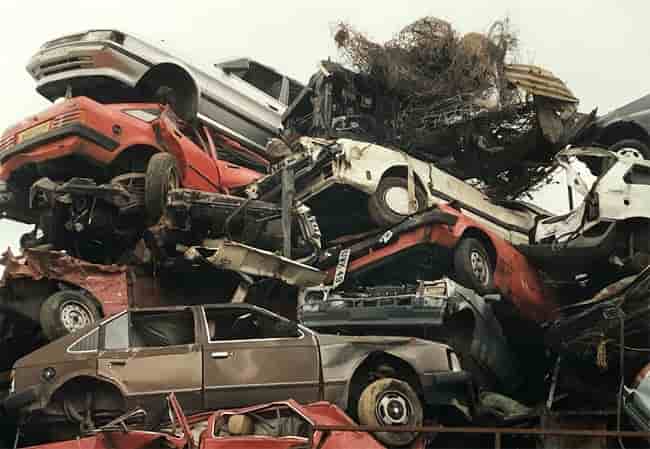
PureCycle Technologies: Revolutionizing Recycling Technology for Sustainable Expansion
PureCycle Technologies has received a significant boost as Oppenheimer research analysts increased the stock’s price target from $10.00 to $14.00, suggesting a potential upside of 27.50% from its current price. This development has sparked considerable interest and excitement within the investment community.
Renowned for its innovative recycling technology, PureCycle Technologies has been making waves in the market by adopting a groundbreaking approach to plastic waste management. Through its advanced purification process, the company effectively eliminates color, odor, and contaminants from polypropylene plastic, transforming it into high-quality resin suitable for various applications. Plastic recycling Automotive
As sustainability takes center stage across industries, PureCycle is well-positioned to capitalize on this burgeoning trend by offering an environmentally responsible solution to plastic waste. By converting discarded plastics into valuable resources, the company not only aids in reducing landfill waste but also contributes to the circular economy.
PureCycle’s outstanding performance is evident in its stock prices, which opened at $10.98 on Friday. The firm’s 50-day moving average currently stands at $8.45, while its two-hundred day moving average sits at $7.33. These figures indicate a positive upward trajectory for the company. Plastic recycling Automotive
With a market capitalization of an impressive $1.80 billion, PureCycle Technologies reflects investors’ confidence and trust in its future prospects. Despite a negative price-to-earnings ratio of -21.53, resulting from substantial investments in research and development, the company remains an attractive choice for long-term investors seeking growth within the sustainable technology sector.
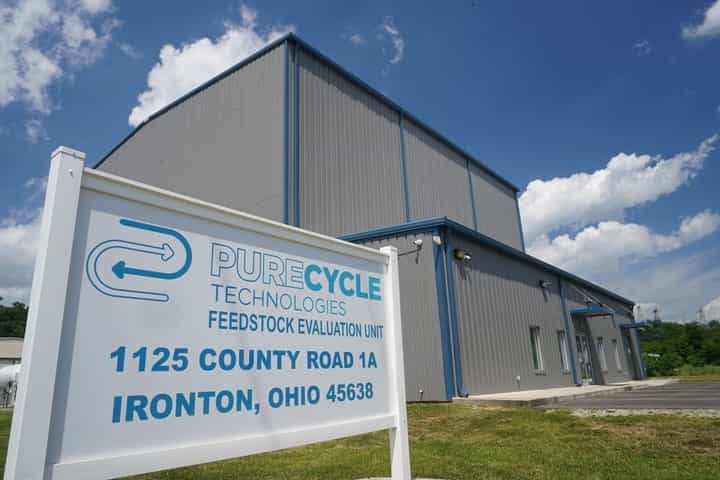
China’s efforts to promote fuel cell vehicles have hit a roadblock amidst the booming electric vehicle (EV) market
As passenger car sales struggle, manufacturers, including Beijing SinoHytec, China’s largest fuel cell maker, are shifting their focus to commercial trucks and buses.
The fuel cell vehicle jointly developed by SinoHytec and Chinese automaker Changan Automobile has experienced abysmal sales since its launch a year ago. Changan dealerships in Shanghai confirmed that the vehicle was primarily developed to showcase technical capabilities rather than for commercial sales. Plastic recycling Automotive
The Changan Deep Blue SL03, touted as China’s first mass-produced fuel cell sedan, relies on a hydrogen-powered fuel cell to drive an electric motor. However, its steep price tag of 699,900 yuan ($98,000) coupled with the scarcity of hydrogen refueling stations has made it a tough sell in the market. Notably, not a single fuel cell passenger car was sold in China for six consecutive months until May, whereas monthly EV sales have surpassed 600,000 units.
SinoHytec reported a net loss of 166 million yuan for the fiscal year ending in December 2022, exceeding the previous year’s loss of 162 million yuan. Dai Wei, the president of SinoHytec subsidiary Shanghai SinoFuelCell, acknowledged that their initial approach of promoting fuel cell vehicles as clean energy with only water emissions was a misstep.
To navigate these challenges, SinoHytec aims to leverage the advantages of fuel cell vehicles over conventional EVs, such as shorter charging times, longer ranges, and better performance in low temperatures. Their focus now lies in selling fuel cells for commercial vehicles, including trucks and buses, which are lighter and offer more cargo capacity compared to EVs. Plastic recycling Automotive
In 2022, SinoHytec emerged as China’s top fuel cell supplier, accounting for 20% of the market. The company collaborated with Toyota Motor and China’s state-owned BAIC Group to provide fuel cell buses for the 2022 Beijing Winter Olympics. Meanwhile, China’s Refire, the second-largest player in the domestic market, delivered fuel cell trucks to IKEA and 49-tonne fuel cell trucks to Caterpillar, a U.S. construction machinery manufacturer.
Commercial vehicles present a significant growth opportunity. In 2022, approximately 300,000 commercial EVs were sold, accounting for 9.2% of all commercial vehicles, while fuel cell vehicle sales only amounted to 0.1% of the total with 3,681 units. Analysts at Sinolink Securities project that by 2025, 7.5% of heavy-duty trucks will be replaced by alternative fuel vehicles, with 25% of that share being fuel cell vehicles.
Fuel cell trucks offer greater cost efficiency compared to other EVs. The operating cost for a 49-tonne truck covering 1 million kilometers is 2.94 million yuan, lower than the 3.23 million yuan for a standard electric truck, according to Sinolink analysts.
Fuel cell vehicles cost 0.07 yuan per tonne per kilometer, while other EVs incur a cost of 0.08 yuan. Plastic recycling Automotive
Generous government subsidies significantly contribute to the lower total cost. A 49-tonne truck priced at 1.3 million yuan receives subsidies of 924,000 yuan from the central and local governments, reducing the purchase price to just 376,000 yuan. In contrast, an EV truck of the same size is estimated to cost 989,000 yuan.
The Chinese government is actively promoting the adoption of fuel cells as part of its carbon neutrality goals by 2060. It has set a target of 50,000 fuel cell vehicles in the country by 2025, with the aim of reducing annual carbon dioxide emissions by 1 million to 2 million tonnes.
SinoHytec’s current customer base primarily consists of publicly-owned bus companies controlled by local governments, indicating the strong influence of national policy on the company’s management. Plastic recycling Automotive
Dai from Shanghai SinoFuelCell highlights that the main raw material for fuel cells, graphite, is inexpensive. Additionally, more expensive platinum can be recycled, and mass production of fuel cells would significantly reduce costs.
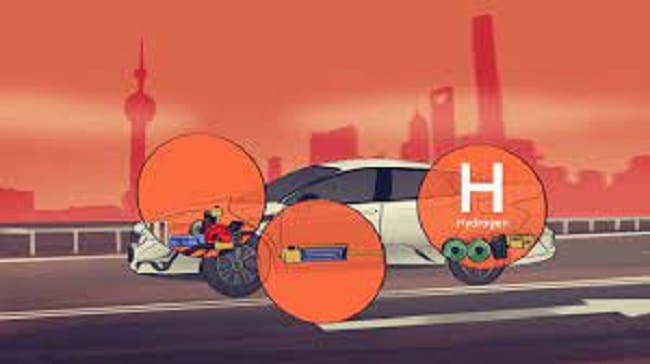
Sprite’s iconic green bottles go clear in Australia, making them easier to recycle in local PET recycling plants
Coca-Cola Australia announced that after nearly 60 years, Sprite’s iconic green plastic bottles will switch to clear plastic, making them easier to recycle into new bottles locally.
The switch from green to clear Sprite bottles will increase the likelihood of these bottles being remade into new bottles, meaning that they can have more than one life.
Kate Miller, Marketing Director at Coca-Cola Australia said: “At Coca-Cola, we want our bottles to have more than one life. Plastic recycling Automotive
All our Sprite bottles under 1 litre are already made from 100 per cent recycled PET plastic (excluding caps and labels). This initiative helps to support recycling systems and gives our bottles the best chance of being recycled and processed into new bottles locally. While Australians have known and loved Sprite in its iconic green bottle for nearly 60 years, we know this is the right thing to do, as we support the transition to circularity for our packaging.”
Planet Ark Environmental Foundation, Australia’s leading environmental behaviour change organisation, welcomed today’s announcement and its potential impact on plastics recycling in Australia. Plastic recycling Automotive
Planet Ark CEO, Rebecca Gilling said: “We all have a role to play in driving our transition to a circular economy in Australia and this is a significant move by Coca-Cola Australia. It’s critical that companies like Coca-Cola continue to invest in making sure their products have the best chance of being recycled. If bottles are collected and recycled and then turned into new bottles locally – this ultimately means less demand for new plastic, as well as reduced carbon emissions.”
![]()
The exchange of Iranian natural gas for Iraqi oil, as recently mentioned by the Iraqi prime minister, is likely to breach U.S. sanctions on Tehran, according to three former U.S. officials
Unless the U.S. grants a waiver permitting such transactions, this barter arrangement would violate the sanctions. On Tuesday, Iraqi Prime Minister Mohammed Shia al-Sudani stated that Iraq intended to trade crude oil for Iranian gas to resolve ongoing payment delays caused by the need for U.S. approval.
As of July 1, Iran had reduced gas exports to Iraq by over half due to Baghdad’s failure to obtain U.S. consent for disbursing owed funds. However, Tehran has now agreed to resume gas exports in exchange for crude oil. Plastic recycling Automotive
Although specific details about the potential barter remain limited, it could help alleviate a political issue for Sudani, as power outages are unpopular in scorching Iraqi summers where temperatures can surpass 50 degrees Celsius (122 degrees Fahrenheit).
Nevertheless, three former U.S. officials have expressed that this barter arrangement would likely violate U.S. sanctions.
Richard Goldberg from the Foundation for Defense of Democracies think tank explained that conducting such a transaction with Iran without a U.S. national security waiver would be a breach of U.S. sanctions.
Goldberg, who previously served on the Trump administration national security council staff, added that the Iran Freedom and Counter-Proliferation Act prohibits any energy-related transactions with Iran. Plastic recycling Automotive
The Secretary of State, Antony Blinken, issued a 120-day waiver on March 21, allowing Iraq to solely make payments to Iran for electricity imports, excluding natural gas for domestic power generation in Iraq.
However, the possibility of amending the waiver to permit barter remains uncertain, as the State Department declined to address the issue. The Treasury Department, responsible for overseeing most U.S. sanctions against Iran, defines the term “transaction” broadly enough to include a barter exchange, according to former U.S. officials.
While this provides some flexibility for the U.S. to turn a blind eye, it ultimately becomes a political decision rather than a legal question. From a strictly legal standpoint, this barter arrangement unquestionably violates U.S. sanctions. Plastic recycling Automotive

